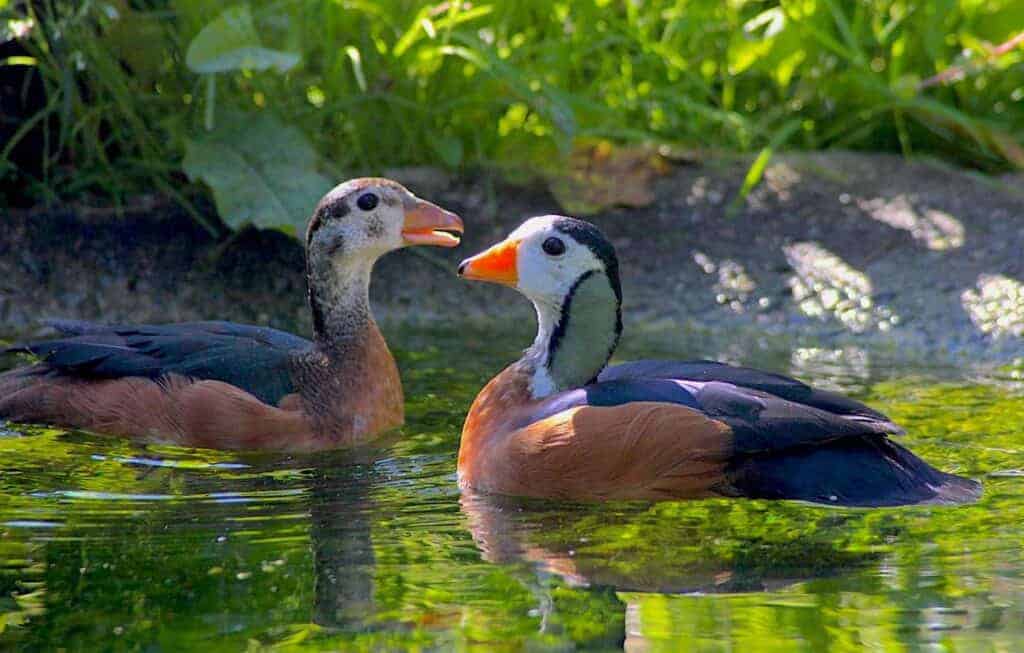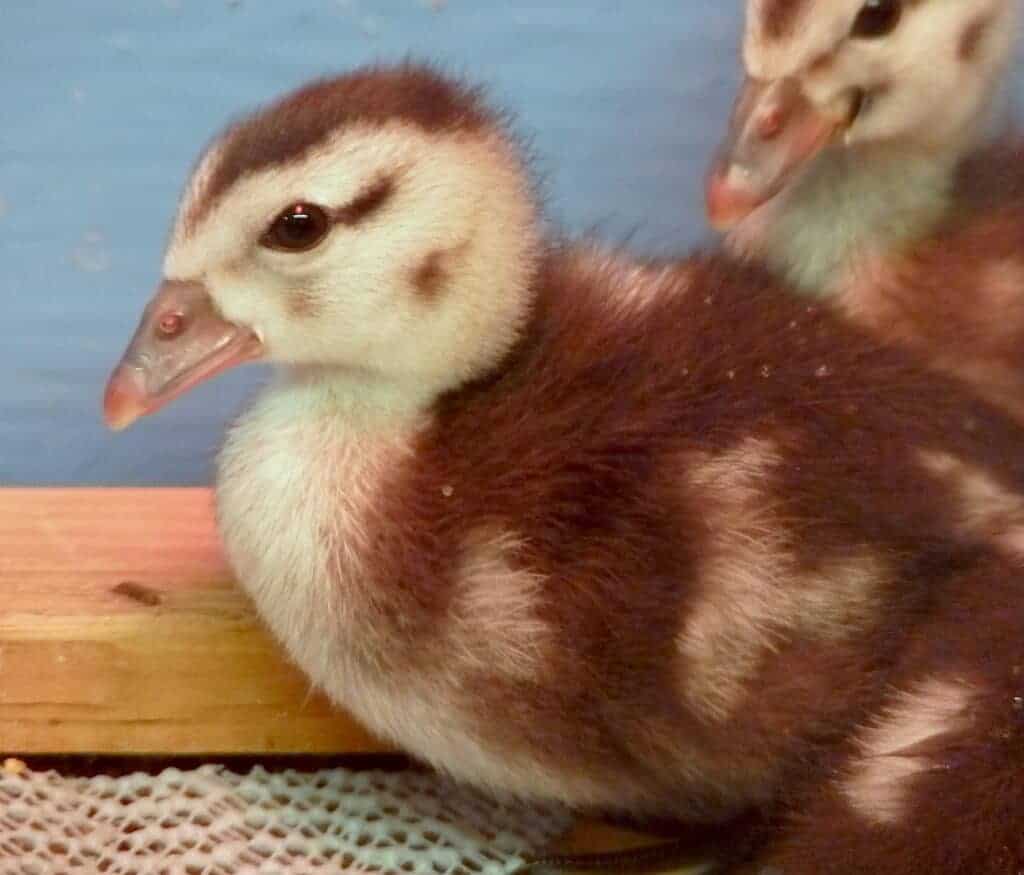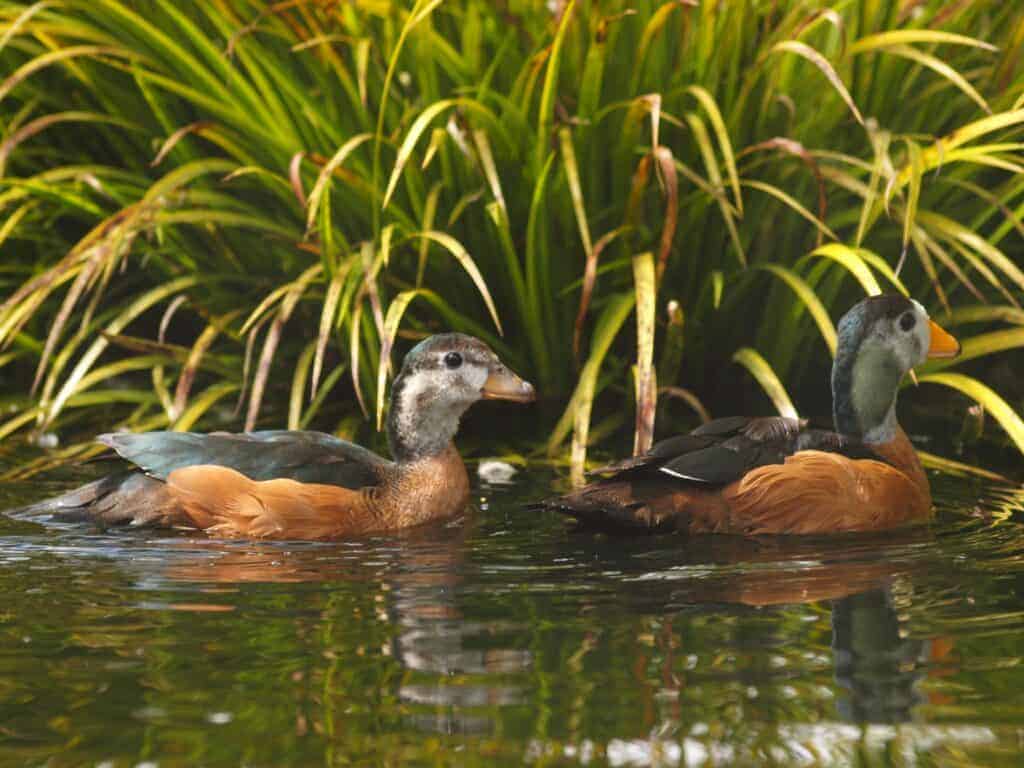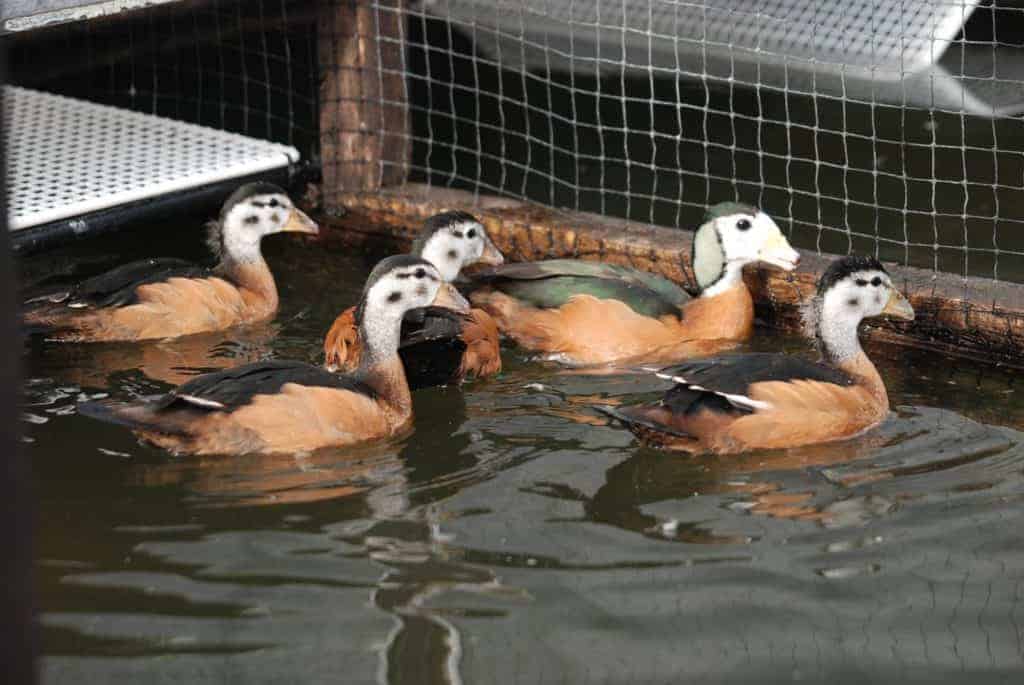African Pygmy Goose


Nettapus auritus
By length, the smallest species of waterfowl in the world, and actually more closely related to most ducks than geese, its bill shape must have led to the name of the African Pygmy Goose. These tiny waterfowl have a huge range in tropical Africa: they occur locally from the Atlantic coast of West Africa to the Indian Ocean, and extending to Madagascar. Despite their apparently conspicuous plumage, they are easily overlooked as they feed or rest among lilies on the freshwater lakes they favour. Highly aquatic, they spend most of their time swimming, rarely coming to land, though they will perch readily on partly submerged branches. They are fast, agile fliers, taking off from the water easily, but seldom flying far when flushed.

The plumages of the sexes are similar, except for the male’s distinctive head pattern, with a bright green patch each side of its head. In flight they show a conspicuous white wing flash. Pygmy geese are sociable birds, often found in small flocks, but occasionally in much larger gatherings outside the breeding season.

Pygmy geese have long presented a major challenge to aviculturists for they are notoriously delicate: this species was bred in captivity for the first time in 1975. First UK breeding was achieved by Bill Makins in 1988.
They do best when kept full-winged in spacious aviaries, giving them protection from not only aerial and terrestrial predators, but also the weather.
Nesting in the wild takes place during the rains, the female laying her clutch of 6–12 27g eggs in tree holes, termite mounds and even Hammerkop nests. Incubation is by the female alone, and takes 23 days.
FURTHER READING
Harteman, J. Harteman Wildfowl Aviaries, African Pygmy Goose
Maclean, G L. (ed. Harrison, J A), 1997. Atlas of Southern African Birds, Vol 1 African Pygmy Goose